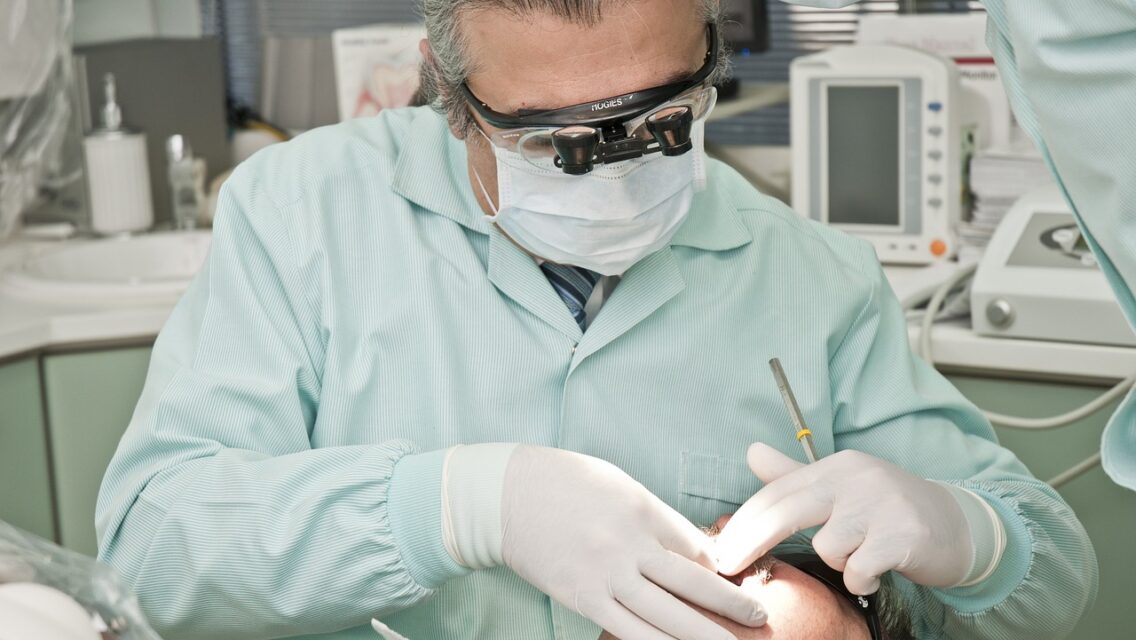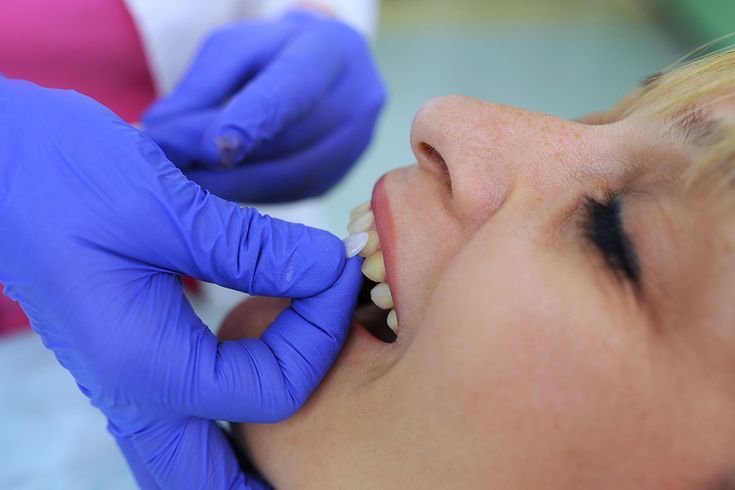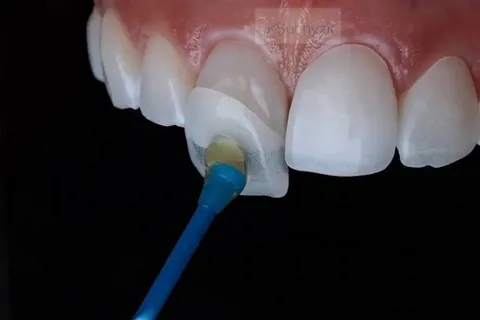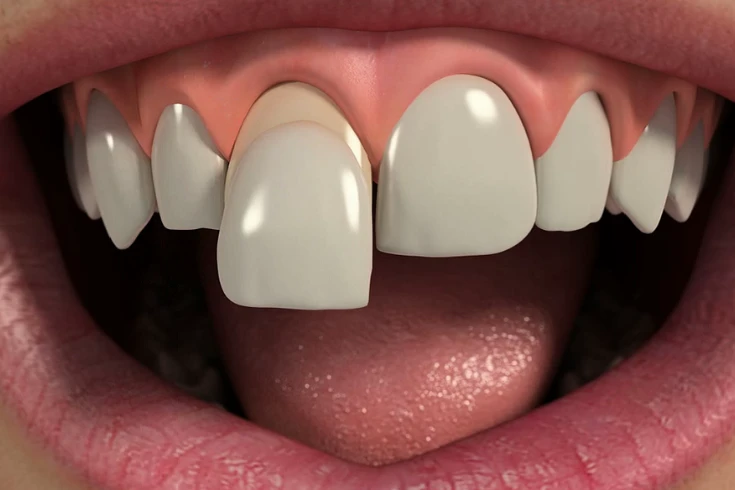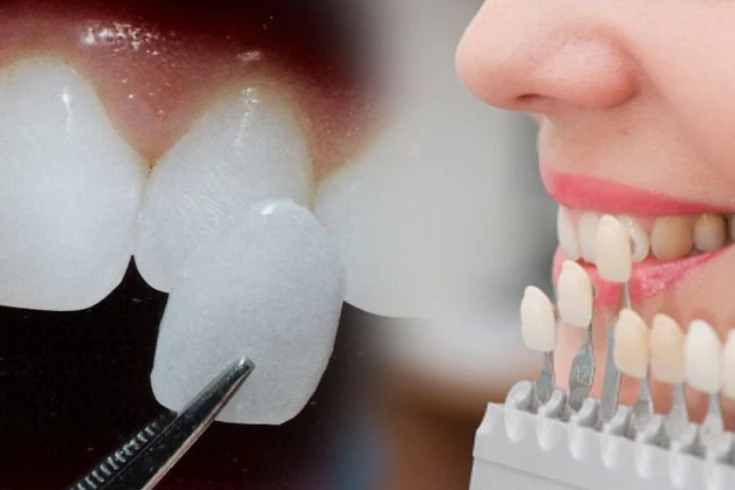You might wonder, “How much is deep cleaning teeth?” or “What are the disadvantages of deep cleaning teeth?” Routine dental cleanings may not suffice for tackling deeper dental issues, and that’s where deep cleaning comes in. This comprehensive guide will explore everything you need to know about deep cleaning teeth, including costs, benefits, expectations before and after the procedure, and potential downsides.
Deep cleaning is typically recommended for patients with gum disease or those at risk of developing it. The benefits include the removal of plaque and tartar buildup, reduced gum inflammation, and prevention of gum disease progression. However, some potential downsides include temporary gum sensitivity and discomfort. The cost can vary depending on your location and dental insurance coverage, but investing in your oral health can lead to healthier gums and teeth in the long run.
What is Deep Cleaning of Teeth?
It is also known as scaling and root planning, is a dental procedure designed to treat gum disease and prevent it from progressing. This procedure cleans between the gums and teeth down to the roots. Unlike regular cleanings, which focus on the visible surfaces of your teeth, deep cleaning teeth addresses plaque and tartar build-up below the gum line. Therefore, it is one of the important factors to maintain your oral health.
What are the procedure included in Teeth Cleaning?
First, the dentist examines your gums and measures the depth of the pockets around your teeth. Deep pockets indicate the need for a deep cleaning.
Next, to ensure comfort, the dentist uses a local anesthetic to numb the area.
Then, the scaling process begins by removing plaque and tartar from the surface of the teeth and below the gum line. The dentist uses specialized instruments, such as ultrasonic scalers and hand tools, to break down and remove the deposits.
Afterward, the dentist smooths out the tooth roots to help gums reattach to the teeth and reduce the pocket depth. This process also helps in removing any remaining bacteria and promotes healing.
Finally, after the procedure, your dentist prescribes antibiotics or a special mouthwash to aid healing. It’s also essential to follow a rigorous oral hygiene routine to maintain the benefits of the deep cleaning.
You can make an appointment for deep teeth cleaning services to get your teeth cleaned from our expert dentist.
What are the advantages and disadvantages of Deep Cleaning Teeth?
There are both advantages and disadvantages of this procedure.
Advantages
It provides several significant benefits, especially for individuals suffering from gum disease. Here are some key advantages:
- Prevention of Gum Disease Progression: By removing the plaque and tartar build-up below the gum line, deep cleaning teeth help prevent the progression of gum disease, potentially avoiding more severe treatments like surgery.
- Reduction of Gum Inflammation: One of the most immediate benefits of this procedure is the reduction of gum inflammation. This helps alleviate symptoms such as swelling, redness, and bleeding.
- Improved Breath: Moreover, the procedure can significantly improve your breath by removing the bacteria responsible for bad odors. This leads to fresher, more pleasant breath.
- Prevention of Tooth Loss: Advanced gum disease can lead to tooth loss. By addressing gum disease early with deep cleaning teeth, you can maintain a healthier mouth and reduce the risk of losing tooth.
- Overall Health Benefits: Oral health is closely linked to overall health. Therefore, treating gum disease with the procedure can lower the risk of associated health issues such as heart disease, diabetes, and respiratory problems.
Disadvantages
While this procedure is highly beneficial for treating gum disease, these re the disadvantages too.
- Discomfort: The procedure can be uncomfortable, especially if your gum disease is severe. Local anesthesia helps, but some discomfort is still common.
- Sensitivity: Post-procedure sensitivity to hot and cold temperatures is common. This sensitivity usually subsides after a few weeks but can be managed with desensitizing toothpaste.
- Gum Recession: In some cases, the gums may recede after deep cleaning teeth, exposing more of the tooth. This can sometimes lead to increased sensitivity and aesthetic concerns.
- Infection Risk: There’s a slight risk of infection post-procedure, though it’s usually manageable with proper care. Your dentist may prescribe antibiotics to prevent this.
- Multiple Visits: Severe cases might require multiple visits, increasing the time and deep cleaning teeth cost. Each quadrant of the mouth might need to be treated separately, necessitating several appointments.
- Temporary Side Effects: You might experience temporary side effects such as swelling, minor bleeding, or discomfort in the treated areas.
What is the cost of Deep Cleaning Teeth?
The cost of the procedure can vary significantly based on several factors, including the severity of your gum disease, the dentist’s location, and whether you have dental insurance. Here’s a breakdown of potential cost:
Average Costs
- Per Quadrant: $150 to $350
- Full Mouth: $500 to $1,500 (with insurance)
Factors Influencing Cost
- Severity of Gum Disease: More advanced cases may require more extensive cleaning and additional treatments, increasing the cost.
- Geographic Location: Dental costs can vary widely depending on the location of the dental practice. Urban areas typically have higher deep cleaning teeth costs than rural areas.
- Dentist’s Experience: Highly experienced dentists or specialists may charge more for their services.
- Additional Treatments: If antibiotics or other medications are needed, this can add to the overall procedure cost.
How Much is a Deep Teeth Cleaning Without Insurance?
To answer the question “how much is a deep teeth cleaning without insurance”, the cost of a full mouth cleaning can be quite high. You can expect to pay anywhere from $500 to $4,000. Therefore, consult with your dentist for a more accurate estimate based on your specific needs. Some dental offices may offer payment plans or financing options to help manage the cost.
What happens Before and After Deep Cleaning Teeth Procedure?
The results of deep cleaning teeth can be quite dramatic. Here’s what you can typically expect in before and after the procedure:
Before the procedure
- Symptoms: Swollen, red, or bleeding gums; bad breath; deep pockets around teeth; loose teeth.
- Plaque and Tartar: Visible build-up on teeth, especially below the gum line.
- Discomfort: Potential pain or discomfort while eating or brushing due to inflamed gums.
After the procedure
- Improved Gum Health: Reduced inflammation and bleeding.
- Fresher Breath: Removal of bacteria that cause bad breath.
- Pocket Reduction: Decreased depth of pockets around teeth, making it easier to maintain oral hygiene.
- Cleaner Teeth: Visibly cleaner teeth and roots, contributing to overall oral health.
- Enhanced Comfort: Less discomfort while eating or brushing, leading to an improved quality of life.
- Long-Term Benefits: Regular follow-ups and maintaining good oral hygiene can prolong the benefits of deep cleaning teeth. Consequently, patients often report sustained improvements in gum health and a significant reduction in gum disease symptoms over time.
What are the Post-Procedure Care of Deep Teeth Cleaning?
To maximize the benefits of cleaning teeth and minimize potential downsides, follow these post-procedure care tips:
- Good Oral Hygiene: Brush and floss regularly to maintain clean teeth and prevent plaque build-up.
- Regular Dental Visits: Schedule follow-up appointments with your dentist to monitor gum health and catch any issues early.
- Dietary Adjustments: Avoid hard, crunchy, or sticky foods immediately after the procedure to prevent irritation.
- Medication Adherence: Take any prescribed antibiotics or use recommended mouthwash as directed by your dentist.
- Hydration: Drink plenty of water to help wash away food particles and bacteria.
Conclusion
In conclusion, deep cleaning teeth is a crucial step in managing and treating gum disease. While it can be costly, especially without insurance, the benefits of improved oral health and the prevention of more serious dental issues make it worthwhile. By understanding the procedure, its cost, and potential downsides, you can make an informed decision and maintain a healthy, beautiful smile. Always consult with your dentist to determine the best course of action for your dental health needs. Regular dental visits and good oral hygiene practices are essential in ensuring the long-term success of deep cleaning teeth and overall oral health.
FAQs
What is deep cleaning teeth, and why is it necessary?
It is essential for treating gum disease by thoroughly cleaning between gums and teeth to remove plaque and tartar build-up below the gum line.
How much does deep cleaning teeth cost?
The cost for this procedure varies widely. On average, it ranges between $150 and $350 per quadrant. For a full mouth procedure, costs typically fall between $500 and $1,500 with insurance coverage. Without insurance, prices can range from $500 to $4,000.
What can I expect before and after the procedure?
Before cleaning, symptoms like swollen, bleeding gums, and bad breath are common. After the procedure, expect reduced inflammation, fresher breath, and cleaner teeth, contributing to better oral health overall.
What are the disadvantages of deep cleaning teeth?
Disadvantages may include discomfort during and after the procedure, sensitivity to hot and cold post-treatment, potential gum recession, infection risks, multiple visits for severe cases, and temporary side effects such as swelling or minor bleeding.
How can I care for my teeth after the procedure?
To maintain results and minimize discomfort, adhere to a regular oral hygiene routine. Attend follow-up dental appointments, avoid hard or sticky foods initially, take prescribed antibiotics, and stay hydrated.
How often should I get a deep cleaning?
Frequency depends on individual oral health needs, often recommended for those with gum disease or high-risk factors. Consult with your dentist to determine the optimal schedule for deep cleaning.
Is deep cleaning teeth covered by dental insurance?
Many dental insurance plans cover this procedure when medically necessary for treating gum disease. Review your specific insurance policy for coverage details and potential out-of-pocket expenses.

